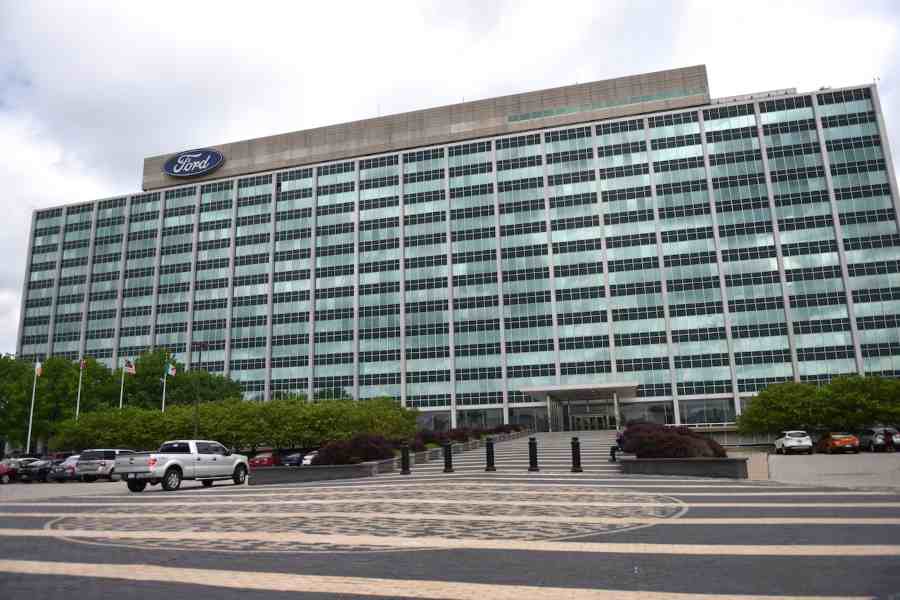Ford Motor Company is back in the spotlight after issuing two major recalls affecting nearly 150,000 of its vehicles. The announcement, first reported by Reuters, outlines two separate safety concerns, each posing a potential risk to driver safety and vehicle performance. The models impacted include several of Ford’s most popular lines, such as the F-150, Expedition, Explorer, and the luxury Lincoln Navigator.
The first recall, and the more widespread of the two, targets specific 2017–2018 Ford F-150, Expedition, and Lincoln Navigator vehicles. A total of 123,611 units are being recalled due to a brake fluid leak issue. The fluid leak originates in the master cylinder and can affect the brake booster. If left unaddressed, this problem can reduce braking performance and increase stopping distance, creating a higher risk of crashes.
Ford says drivers may experience a soft brake pedal, longer braking distances, or even dashboard warnings if their vehicle is affected. In the worst cases, this defect can result in serious collisions. The automaker is responding by offering free part replacements at dealerships, assuring that customers will not be charged for the repair work.
The company’s engineers traced the issue to a seal in the brake master cylinder that wears down prematurely. As brake fluid escapes, it leaks into the brake booster—a crucial part of the braking system—undermining the system’s overall reliability. Even if the driver doesn’t feel an immediate difference in braking, continued driving under these conditions can eventually lead to complete brake failure.
Ford has begun notifying impacted customers directly and encourages owners to use their online recall lookup tool by entering their vehicle’s VIN (Vehicle Identification Number) to determine eligibility. Ford-authorized dealerships are fully equipped to conduct the necessary repairs and restore the vehicle’s brake system integrity.
The second recall is smaller in scope but just as serious. It affects 24,655 units of the 2025 Ford Explorer due to an issue with the vehicle’s Powertrain Control Module (PCM). The PCM, essentially the central brain for the engine and transmission, may unexpectedly reset while the vehicle is in motion. This type of software glitch can result in the vehicle’s engine stalling or even damage to the park system.
Unlike the brake issue, this concern is rooted in programming. When the PCM resets without warning, drivers could find themselves in a dangerous situation, especially on highways or during busy traffic conditions. The risk of an engine stall or malfunctioning park mechanism is not only frustrating but poses a real threat to road safety.
Ford is addressing the PCM glitch through a software update that will be installed at no cost to vehicle owners. The update will reprogram the PCM to prevent unexpected resets during operation. So far, the company has not reported any accidents or injuries related to this issue, but they are acting out of caution and a commitment to public safety.
This dual recall marks another chapter in what has been a challenging period for Ford in terms of quality control. In the past year, the company has dealt with recalls related to everything from battery fires in hybrid models to suspension defects and seatbelt malfunctions. While the complexity of modern vehicles has introduced new performance features, it has also opened up a greater margin for potential faults, many of which are not discovered until vehicles are already in circulation.
Ford has stated that it remains committed to ensuring safety and maintaining customer trust. Their decision to act quickly and offer full repair support is part of that mission. Nevertheless, industry analysts note that repeated recalls, especially involving core components like brakes and engine control systems, can erode brand confidence if not carefully managed.
Drivers who own any of the affected models—especially those from the 2017–2018 F-150, Expedition, and Lincoln Navigator lines, as well as 2025 Explorers—are strongly encouraged to check their VIN immediately. Early identification and repair can prevent serious incidents, and with dealerships covering all repair costs, there’s no reason for delay.
Even with modern vehicles packed with advanced technology, the fundamentals of safety remain the same. A properly functioning brake system and stable engine performance are non-negotiable. While software-driven vehicles offer improved fuel efficiency and smarter driving features, they also require constant monitoring and maintenance to avoid breakdowns and defects.
For owners, this is a crucial reminder of the importance of staying up to date on recalls. Manufacturers and government regulators like the National Highway Traffic Safety Administration offer tools to keep drivers informed, and registering for recall alerts can save lives in the long run.
Ford’s response to the recalls will be closely watched—not just by consumers, but also by industry insiders monitoring how legacy automakers adapt to the ever-changing demands of automotive technology and safety standards.
This latest development is a wake-up call to both drivers and manufacturers: no matter how high-tech a vehicle may be, there is always room for error, and it’s how a company responds that defines its relationship with customers. For now, Ford has taken the right step, but long-term trust will depend on reducing the need for such recalls in the first place.

